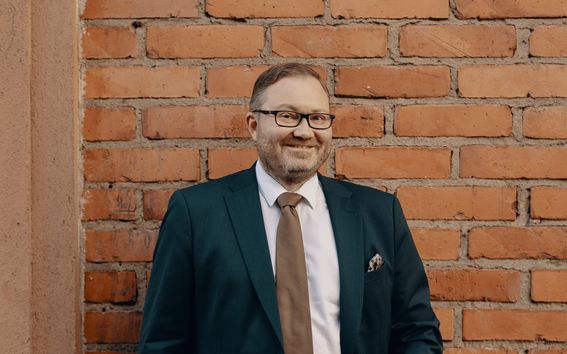Study electrical engineering
Electricity is everywhere, and our society would not function without it. As a student at the School of Electrical Engineering, you can find solutions to issues related to sustainable development and human well-being.

What did you study and why did you choose that subject as your major?
I studied electrical engineering and communications and graduated in 2004. The electricity industry seemed interesting and offered a lot of different opportunities. When I was in upper secondary school, I wasn’t sure what kind of work I wanted to do. That's why it was nice to have a wide variety of course options to choose from.
What was the most interesting thing about your studies?
I was really active in student life – I was a guild chairman and a member of the student union board. I’d recommend to everyone that they get involved in student activities, as it was really interesting and educational. From that time, I still have many friends, acquaintances and other networks, and I probably couldn’t have found these anywhere else.
The most interesting part of the studies was data communications and telephone networks. During my studies, I noticed that I was interested in a lot of things, and I wanted to know at least something about a broad range of things rather than a lot about one particular topic.
What aspects of your studies have been particularly useful for working life?
Since I am currently engaged in managerial work, the things that have particularly remained with me are those that relate to management and different workplace practices. Through my activities as part of the Student Union, I was able to get to know different business managers and their management styles.
What are the employment prospects in your sector?
Masters of Science in Technology have good employment prospects and I believe that the importance of all master's degrees will further increase in the future. I believe that, in the future, the most successful people will be experts with a broad range of knowledge that are able to access and make use of extensive networks.
Masters of Science in Technology play a key role in keeping Finland at the cutting edge in different fields of innovation. As a small country, it is clearly to our advantage if we are able to develop solutions that we can export abroad.
Where do you currently work and how did you end up in your current job?
I currently work as Director General of the Digital and Population Data Services Agency. Before working for the state I was a telecommunications consultant in the corporate world. My career working for the government began in 2012 when I ended up working for Customs. After working in a small consulting company, I wanted to try working in a large organisation.
Management and digitalisation have been the common themes throughout my career. My work duties have been connected with the management of projects, organisational units and, in recent years, entire organisations.
What tips would you give to those starting their master's studies?
In my opinion, it is important to be able to pay attention to how broad one’s studies are, and to study subjects which are outside of one’s main area of interest. Creating networks and getting to know people is also very important during one’s studies. Everyone can find their place, and not everyone needs to be an active student or active guild member; you can also get to know people through different associations, organisations or study groups. You should also keep hold of those contacts that you make during your studies.
In addition, regardless of their study field, everyone should seek to understand digitalisation better. I have noticed that even large companies still do not understand that digitalisation facilitate the core functions of their organisation. There are issues in all sectors that can benefit from the application of digital technologies.

Electricity is everywhere, and our society would not function without it. As a student at the School of Electrical Engineering, you can find solutions to issues related to sustainable development and human well-being.

The School of Electrical Engineering Alumna of the Year 2019 is Kirsi Karlamaa, Director-General of Traficom.



